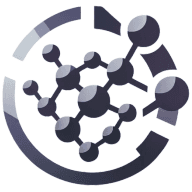Welcome to a deep dive into the ethical implications of nanotechnology innovations. This rapidly advancing field holds immense potential for societal transformation. However, it also presents a host of ethical considerations that we must address. This blog post will explore these ethical considerations, shedding light on the responsibilities of scientists, policymakers, and society at large in navigating the future of nanotechnology.
The Promise and Peril of Nanotechnology
Nanotechnology, the manipulation of matter on an atomic and molecular scale, promises to revolutionize numerous sectors. From medicine to energy production, the potential applications are vast. Yet, with great power comes great responsibility. The ethical implications of these innovations are equally profound and demand our attention.
Nanotechnology's potential benefits are staggering. In medicine, it could lead to targeted drug delivery, reducing side effects and improving patient outcomes. In energy production, it could result in more efficient solar panels, contributing to the fight against climate change. However, these benefits are not without potential risks and ethical dilemmas.
The risks associated with nanotechnology are multifaceted. They include health risks from exposure to nanoparticles, environmental risks from nanoparticle pollution, and societal risks from potential misuse of the technology. These risks raise ethical questions about the responsibility of scientists and policymakers in developing and regulating nanotechnology.
Health and Environmental Risks
Health risks associated with nanotechnology are a significant concern. Nanoparticles can penetrate biological barriers, such as the skin, lungs, and blood-brain barrier, potentially causing harm. The long-term effects of exposure to nanoparticles are still largely unknown, raising ethical questions about the precautionary principle in nanotechnology development.
Environmental risks are another major concern. Nanoparticles can accumulate in the environment, potentially harming ecosystems and biodiversity. The lifecycle of nanomaterials, from production to disposal, needs careful consideration to minimize environmental impact. This raises ethical questions about sustainability and intergenerational justice in nanotechnology development.
Societal Risks and the Digital Divide
Societal risks associated with nanotechnology are also significant. The potential misuse of nanotechnology for malicious purposes, such as the creation of new forms of weapons, raises ethical questions about the dual-use dilemma in science and technology.
Moreover, nanotechnology could exacerbate the digital divide. As nanotechnology advances, access to and control over these technologies may become increasingly concentrated in the hands of a few, leading to increased inequality. This raises ethical questions about justice and fairness in the distribution of nanotechnology benefits and risks.
Regulation and Public Engagement
The regulation of nanotechnology is a complex issue. Existing regulatory frameworks may not be adequate to address the unique challenges posed by nanotechnology. This raises ethical questions about the responsibility of policymakers in ensuring the safe and responsible development and use of nanotechnology.
Public engagement is crucial in addressing the ethical implications of nanotechnology. A dialogue between scientists, policymakers, and the public can help to ensure that the development of nanotechnology is guided by societal values and needs. This raises ethical questions about democracy and participation in science and technology governance.
Ethical Frameworks for Nanotechnology
Ethical frameworks for nanotechnology can help to guide decision-making in this complex field. These frameworks can provide principles and guidelines for addressing the ethical implications of nanotechnology. They can help to ensure that the development and use of nanotechnology respects human rights, promotes social justice, and protects the environment.
However, developing these ethical frameworks is a challenging task. It requires a deep understanding of the ethical issues at stake, as well as a commitment to ongoing dialogue and reflection. This raises ethical questions about the role of ethicists and philosophers in shaping the future of nanotechnology.
The Future of Nanotechnology: Ethical Considerations
The future of nanotechnology is uncertain. It holds immense potential for societal transformation, but also presents significant ethical challenges. These challenges demand our attention and action.
The ethical considerations of nanotechnology innovations are not just the responsibility of scientists and policymakers. They are the responsibility of all of us. As members of society, we have a role to play in shaping the future of nanotechnology. This raises ethical questions about our collective responsibility in the face of technological change.
Navigating the Ethical Landscape of Nanotechnology Innovations
As we stand on the brink of a nanotechnology revolution, we must navigate the ethical landscape with care. The ethical considerations of nanotechnology innovations are complex and multifaceted, demanding our attention and action. By engaging in dialogue, developing ethical frameworks, and taking collective responsibility, we can help to ensure that the future of nanotechnology is bright and beneficial for all.

